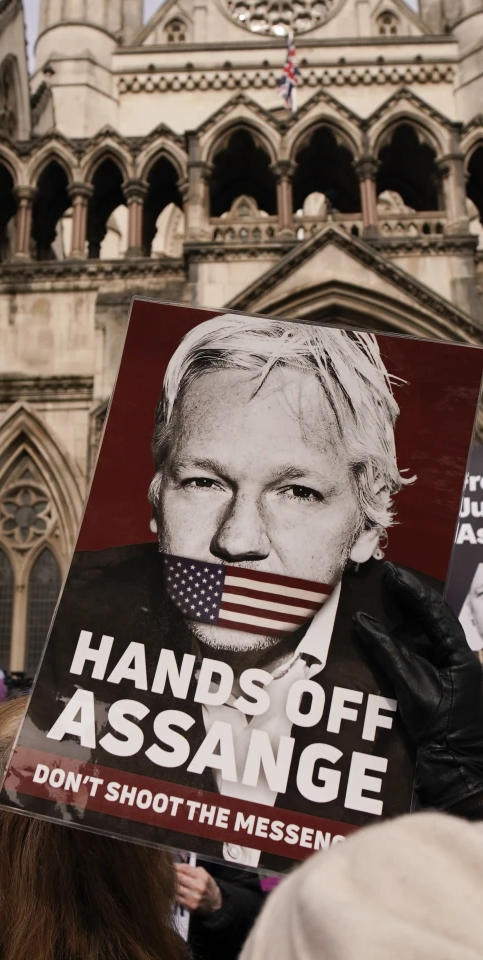
London, March 26 (RHC)-- A British court ruled Tuesday that Julian Assange can’t be extradited to the United States on espionage charges unless U.S. authorities guarantee he won’t get the death penalty, giving the WikiLeaks founder a partial victory in his long legal battle over the site’s publication of classified American documents.
Two High Court judges said they would grant Assange a new appeal unless U.S. authorities give further assurances within three weeks about what will happen to him. The ruling means the legal saga, which has dragged on for more than a decade, will continue — and Assange will remain inside London’s high-security Belmarsh Prison, where he has spent the last five years.
Judges Victoria Sharp and Jeremy Johnson said the U.S. must guarantee that Assange, who is Australian, “is afforded the same First Amendment protections as a United States citizen, and that the death penalty is not imposed.”
The judges said that if the U.S. files new assurances, “we will give the parties an opportunity to make further submissions before we make a final decision on the application for leave to appeal.” The judges said a hearing will be held May 20th if the U.S. makes those submissions.
Assange’s supporters say he is a journalist protected by the First Amendment who exposed U.S. military wrongdoing in Iraq and Afghanistan that was in the public interest. They have argued his prosecution is politically motivated and he can’t get a fair trial in the U.S.
Assange’s wife Stella Assange said the WikiLeaks founder “is being persecuted because he exposed the true cost of war in human lives.”
“The Biden administration should not issue assurances. They should drop this shameful case, which should never have been brought,” she said outside the High Court in London.
The ruling follows a two-day hearing in the High Court in February, where Assange’s lawyer Edward Fitzgerald said American authorities were seeking to punish him for WikiLeaks’ “exposure of criminality on the part of the U.S. government on an unprecedented scale,” including torture and killings.
The judges rejected six of Assange’s nine grounds of appeal, including the allegation that his prosecution is political. They said that while Assange “acted out of political conviction … it does not follow however that the request for his extradition is made on account of his political views.”
They accepted three grounds or appeal: the threat to Assange’s freedom of speech, Assange’s claim that he faces disadvantage because he is not a U.S. citizen, and the risk he could receive the death penalty.
Julian's wife, Stella Assange’s and supporters say his physical and mental health have suffered during more than a decade of legal battles, including seven years in self-exile in the Ecuadorian Embassy in London and the last five years in prison.
A U.K. district court judge rejected the U.S. extradition request in 2021 on the grounds that Assange was likely to kill himself if held under harsh U.S. prison conditions. Higher courts overturned that decision after getting assurances from the U.S. about his treatment. The British government signed an extradition order in June 2022.

